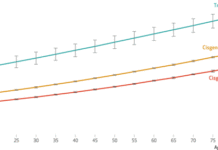The Ministry of Health for the Mexican state of Jalisco has issued a warning over monkeypox aimed at anyone who visited a gay beach club in Puerto Vallarta last week.
In a statement posted in stilted English on the department’s Facebook page Wednesday, June 8, the department wrote, “In Jalisco, we have strengthened surveillance to detect monkeypox cases on time and help provide timely attention. For further information please contact our Call Center at 33-3823-3220 or the Epidemiological and Health Intelligence Unit (UIES) of Secretaría de Salud de Jalisco (Jalisco Ministry of Health) at 33-3030-5000 ext. 35059 and 35072.”
The announcement included a graphic in English that advised anyone who attended parties at the Mantamar Beach Club between May 27 and June 4 and “especially” those who have exhibited symptoms to seek immediate medical help. The posting lists medical facilities in Puerto Vallarta.
The post drew dozens of mostly negative comments on Facebook, including from someone who posted a Photoshopped image showing apes from a “Planet of the Apes” movie superimposed on the pool at Mantamar. Another wrote in Spanish that diseases are always brought to Mexico by foreigners and the government does nothing.
According to a news release issued by the Jalisco Health Ministry June 7, a 48-year-old tourist from Dallas arrived in Puerto Vallarta on May 27 and first began to experience symptoms of monkeypox on May 30. His symptoms included cough, chills, muscle pain, and pustule-like lesions on the face, neck, and trunk. He had previously visited Berlin, Germany May 12-16 and had returned to Dallas before heading to Puerto Vallarta. Instead of isolating himself in quarantine as he had been told to do by medical authorities, the man flew back to Dallas on June 4.
The official release stated, “The man went to a private hospital in Puerto Vallarta and, due to the suspicion of this disease, he was instructed to take samples and isolate himself, which he refused and left the unit (actually he fled).”
As the Bay Area Reporter previously reported, the monkeypox virus is transmitted through close personal contact, including skin-to-skin contact, kissing, contact with clothes or bedding, and respiratory droplets at close range. But it is not thought to spread through the air at longer distances like the virus that causes COVID-19.
Monkeypox, which is related to smallpox but less severe, causes flu-like symptoms, swollen lymph nodes, and a rash that can occur on the face, in the mouth, or anywhere on the body; the lesions, which can be painful, typically progress from flat to raised to pus-filled. The virus has an incubation period of up to three weeks before the onset of symptoms, and the illness typically lasts two to four weeks. Transmission is most likely when people are symptomatic, and they can remain infectious until the sores are completely healed and the scabs fall off.
It is unclear whether monkeypox is directly transmitted through semen, but — like herpes and syphilis — it can spread through contact with sores during sex. (As a precaution, the U.K. Health Security Agency advises people with monkeypox to use condoms for eight weeks after infection.)
The first case in the ongoing outbreak was reported May 7 in the United Kingdom. As of June 4, the World Health Organization has identified 780 confirmed cases in 27 countries where the virus is not endemic, with high numbers in several European countries and Canada. Previously, monkeypox was mostly seen in West and Central Africa.
So far, all but a handful of these cases have been men, most of who identify as gay, bisexual, or other men who have sex with men. Many cases have been linked to a Pride event in the Canary Islands, a fetish festival in Belgium, and saunas in Spain and Montreal. While anyone can contract monkeypox through close personal contact, health officials are urging the gay community, in particular, to be alert ahead of this month’s Pride events.
While monkeypox is not a “gay disease,” the current outbreak appears to be driven largely by transmission within sexual networks of gay and bi men, including at events and venues where men have sex or other close contact with multiple partners.
Help keep the Bay Area Reporter going in these tough times. To support local, independent, LGBTQ journalism, consider becoming a BAR member.








